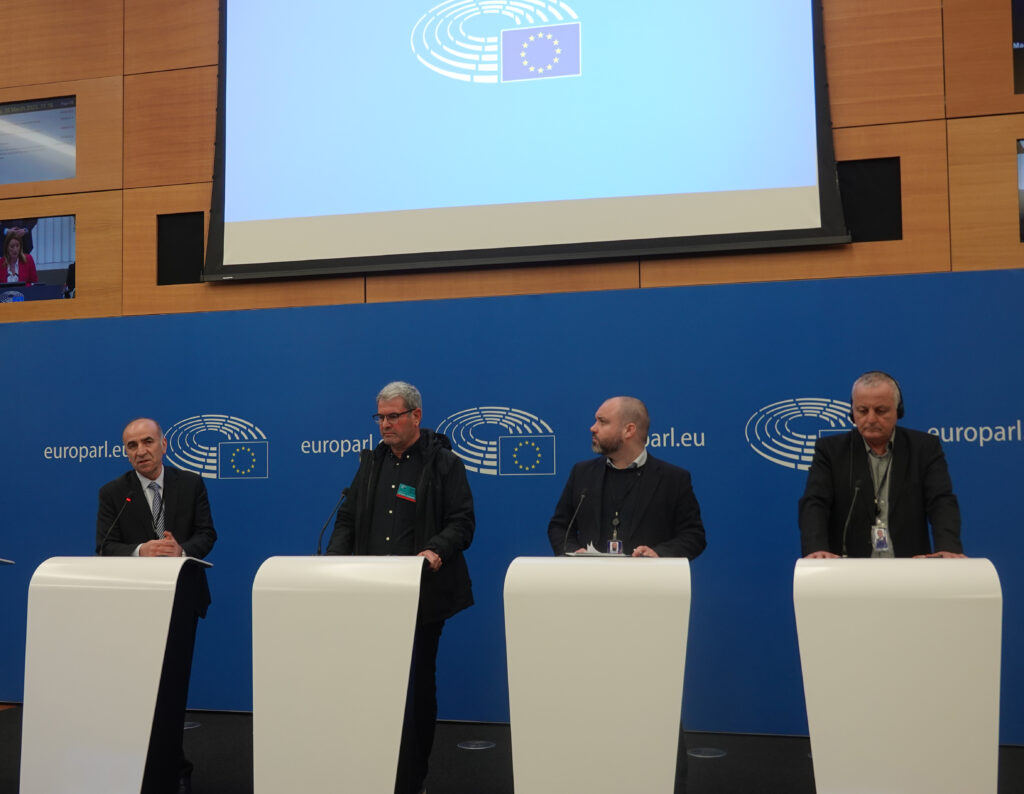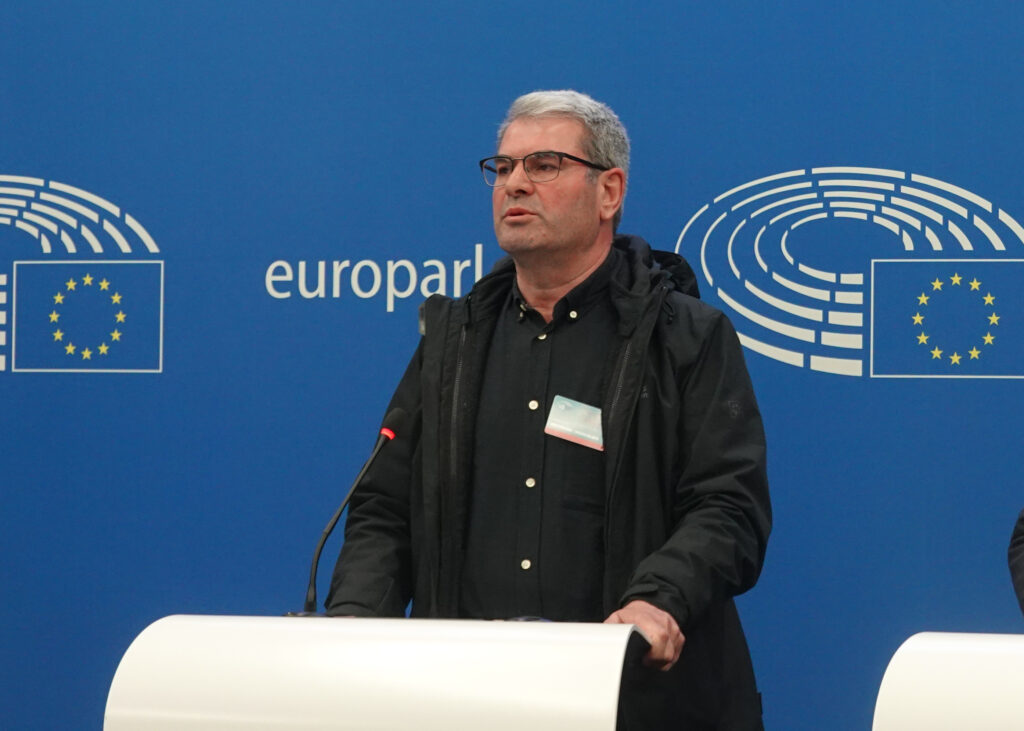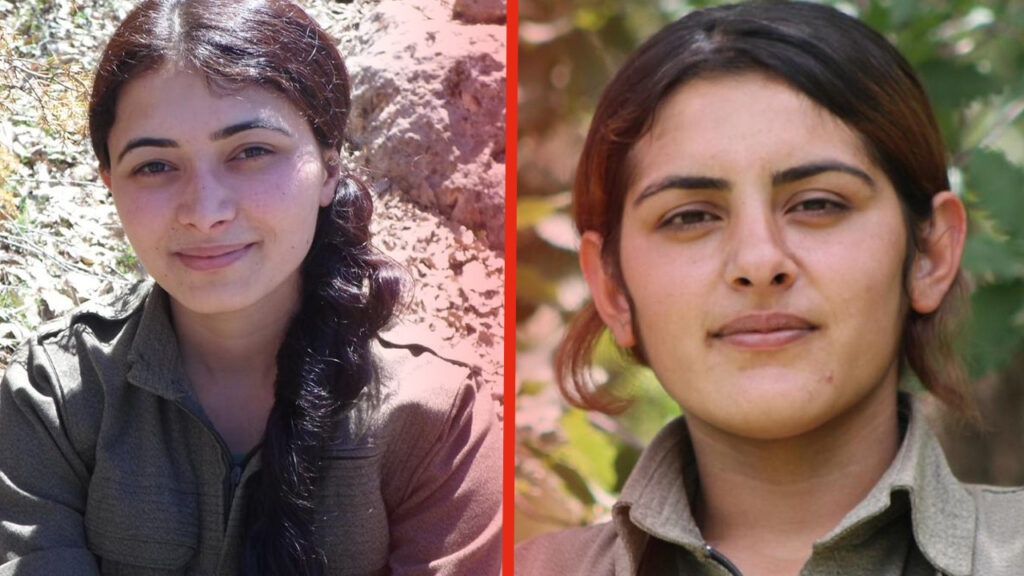Sarah Glynn reports from Strasbourg
Xoşnav Ata is a man with a mission. Since the beginning of August, he has spent three hours every day outside the Organisation for the Prohibition of Chemical Weapons (OPCW) in the Hague, in an attempt to persuade them to do what the organisation was set up for. He is calling on them to investigate accusations of the use of chemical weapons – in this case by Turkey against Kurdish guerrillas, including two of Ata’s nieces. But this week he took a few days off to meet with MEPs at the European Parliament in Strasbourg, and, on Wednesday morning, to speak at a press conference hosted by the parliament’s Kurdish Friendship Group.

The press conference was introduced by Danish MEP Nikolaj Villumsen (Red-Green Alliance), who stressed that there is never an excuse to use chemical weapons and that all countries have a duty to ensure that accusations of their use are independently investigated. Ata began his speech by remembering Saddam Hussein’s chemical attack on Halabja, on 16 March 35 years ago, in which 5,000 Kurds died and many more were injured. As he observed, the attack elicited little international reaction until 15 years later, when the United States used it to justify their invasion of Iraq. And now, he continued, the Turkish state is again using chemical weapons against the Kurds – which is recognised as a war crime and a crime against humanity – and Europe and the United States are again not reacting.
Ata recounted how, after the death of his two nieces, he looked for what he could do to help, and that when he learnt about the OPCW, which was established by 193 countries as an independent organisation, he made up his mind to start his vigil.
Although he is there alone, the Kurdish community has shown support through two large demonstrations, with 30,000 people marching in the Netherlands and 50,000 in Germany.
In response to this pressure, the OPCW made a statement through the media that for an investigation they require a request from a member state. But, Ata explained, “We are about 50 million people without a state”.
Campaigners have sent photographs and videos to the OPCW showing Kurdish guerrillas who have lost their lives, and have repeatedly invited them to investigate, but, as Ata put it, “When it comes to the Kurds, everyone becomes silent.”
Of course, they are not giving up, which is why Ata was at the European Parliament to ask MEPs to put pressure on Turkey not to use chemical weapons and on the OPCW to carry out an independent investigation into what is happening.

After Ata had spoken, François Alfonsi MEP (Party of the Corsican Nation) stressed the importance of bringing this war crime to the attention of the European Parliament and European Commission, so that they cannot say that they do not know what is happening, and so that they have to act.
Ata has also been having meetings with members of Podemos, Sinn Féin, Die Linke and Italy’s Democratic Party.
The ban on chemical weapons, to which Turkey is a signatory, is universal. MEPs and international organisations do not need to sympathise with those killed in order to condemn the manner of their killing. But I wanted to know more about Ata’s nieces who had inspired his vigil, and after the press conference I asked him to tell me about them.
The Ata family demonstrates how the Kurdish struggle for basic rights and freedoms can only be understood as a war, and how it is a struggle that has passed down the generations. Ata lost his father and two brothers to the struggle, and his daughter died defending Kobanê. He told me that both his nieces, who were cousins, had been very lively children and had grown up with the stories of their grandfather and uncles who had died fighting for Kurdish rights.
Mehriban Ata, the older of the two, left education after primary school to do agricultural work alongside her parents. She joined the PKK aged around twenty, going first to South (Iraqi) Kurdistan for two years and then to Dersim, in Turkey. There, after a further seven years, in October 2021, she was killed by the Turkish army. When her parents saw her body, there was no sign of bullet wounds, but a yellow liquid issued from her mouth. They were not allowed to arrange her funeral. She was buried by the Turkish state.
Gulperin Ata was born in a village and continued her education through to the lycée, where she was detained, when still a teenager, for her activities on behalf of the Kurdish Freedom Movement. She refused to speak to the police, even though they tortured her, and when she was released, she left to join the PKK. In 2014, five friends she was with were killed, but she escaped, wounded, to South Kurdistan, where she was killed last May by a Turkish chemical attack.

As we walked to the parliament buildings for yesterday’s meetings, a stork was gathering twigs for its nest, but while most of us look forward to the coming of spring, for the Kurdish guerrillas in the Iraqi mountains, milder weather can mean an intensification of Turkey’s attacks – not that these ever stopped.
Meanwhile Xoşav Ata will continue his lonely vigil. For a protest of more than one person, Dutch law requires protestors to give notice, and although, generally, protest should not be restricted, there is scope for special rules near official buildings. Ata does not want to take the risk of being made to leave. The police keep a watch and warn any visitors who stay too long. Ata himself is ready to continue his vigil for as long as it takes to get the OPCW to act.










